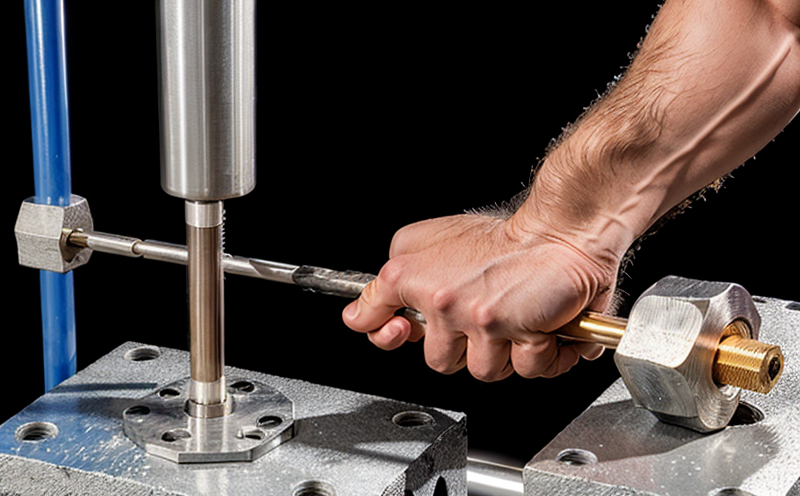Impact of temperature on tensile strength testing
The Crucial Impact of Temperature on Tensile Strength Testing A Game-Changer for Your Business
As a business owner in the materials science and engineering industry, you understand the importance of ensuring the quality and reliability of your products. One critical aspect of this process is tensile strength testing, which measures the maximum stress that a material can withstand while being stretched or pulled before failing. However, theres another crucial factor to consider temperature. The impact of temperature on tensile strength testing is a game-changer for businesses like yours.
At Eurolab, we specialize in laboratory services that help you make informed decisions about your products performance under various conditions. Our Impact of Temperature on Tensile Strength Testing service is designed to simulate real-world scenarios and provide valuable insights into how temperature affects the tensile strength of your materials. In this article, well delve into the importance of this testing method, its advantages, and how it can benefit your business.
What is Impact of Temperature on Tensile Strength Testing?
Tensile strength testing is a widely used method to evaluate the mechanical properties of materials. However, temperature plays a significant role in determining a materials tensile strength. The impact of temperature on tensile strength testing involves simulating various temperatures and assessing how they affect the materials performance.
Our Impact of Temperature on Tensile Strength Testing service involves
Conducting tensile strength tests at different temperatures (e.g., room temperature, elevated temperature, or low-temperature conditions)
Analyzing the effects of temperature on material properties such as yield strength, ultimate tensile strength, and elongation at break
Providing a comprehensive report detailing the results and recommendations for future product development
Advantages of Using Impact of Temperature on Tensile Strength Testing
The benefits of using our Impact of Temperature on Tensile Strength Testing service are numerous
Improved Product Reliability By understanding how temperature affects your materials tensile strength, you can design products that perform optimally in various environments.
Enhanced Quality Control Our testing method helps you identify potential weaknesses and optimize material selection for specific applications.
Increased Efficiency With our comprehensive reports, youll have a clear understanding of the thermal properties of your materials, enabling informed decision-making and reduced development time.
Compliance with Industry Standards Our Impact of Temperature on Tensile Strength Testing service ensures that your products meet regulatory requirements and industry standards.
Key Benefits
Accurate Material Selection Understand the thermal properties of your materials to make informed decisions about material selection for specific applications.
Optimized Product Design Use our results to design products that perform optimally in various environments, reducing the risk of failure.
Reduced Development Time Our comprehensive reports provide valuable insights, enabling faster and more efficient product development.
Improved Cost Savings By identifying potential weaknesses and optimizing material selection, you can reduce costs associated with rework or material waste.
QA Frequently Asked Questions
What types of materials are suitable for Impact of Temperature on Tensile Strength Testing?
Our service is applicable to a wide range of materials, including metals, polymers, ceramics, and composites.
How does temperature affect tensile strength?
Temperature can significantly impact tensile strength by altering material properties such as yield strength, ultimate tensile strength, and elongation at break.
What is the typical temperature range for Impact of Temperature on Tensile Strength Testing?
Our service simulates a range of temperatures from -50C to 1500C (or higher) depending on your specific requirements.
How long does the testing process take?
The duration of our Impact of Temperature on Tensile Strength Testing service varies depending on the number of tests and temperature ranges involved, but typically takes several days to a few weeks.
What type of report do you provide after completing the testing?
Our comprehensive reports include detailed results, graphs, and recommendations for future product development.
Conclusion
The impact of temperature on tensile strength testing is a critical aspect of ensuring your products quality and reliability. Our Impact of Temperature on Tensile Strength Testing service at Eurolab provides valuable insights into how temperature affects material properties. By leveraging our expertise and state-of-the-art equipment, you can make informed decisions about product development, reduce costs, and improve efficiency.
Dont compromise on the performance of your products. Contact us today to learn more about our Impact of Temperature on Tensile Strength Testing service and take your business to the next level.




